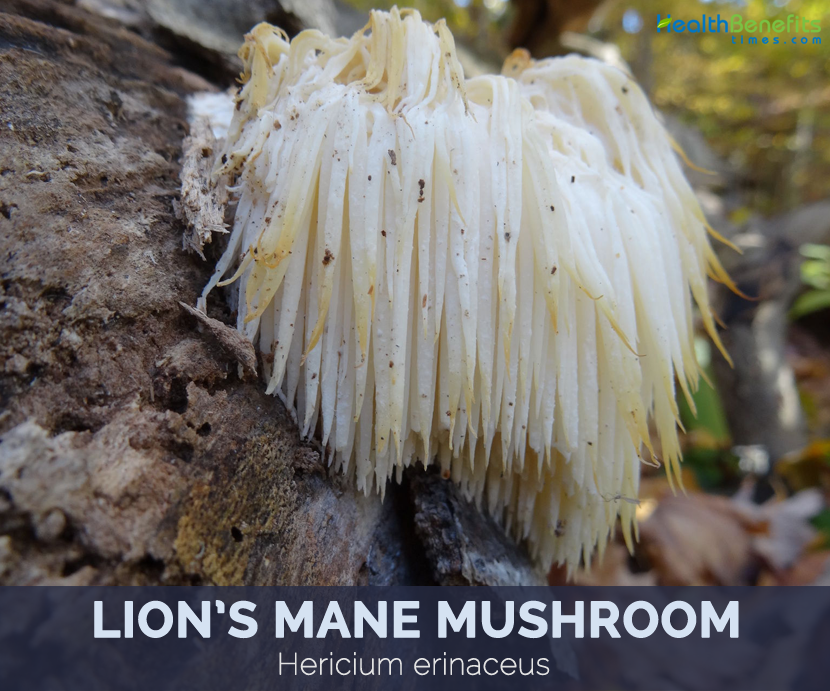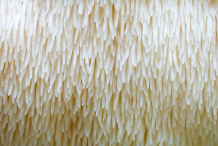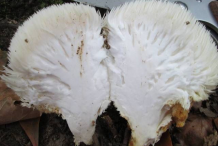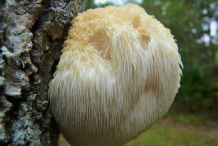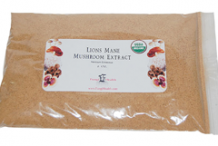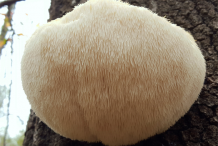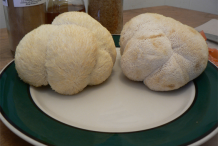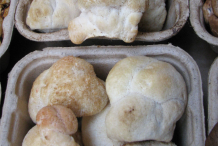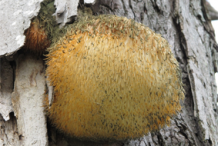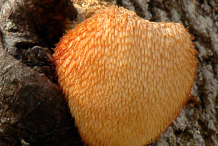But whilst cognitive enhancement is considered the most essential effects of Lion’s Mane, it’s far away from the only one; studies claim that Lion’s Mane is really a effective neuro protectant that may be beneficial in the management of a startling variety of conditions which range from cardiovascular health to obesity and also some kinds of cancer. These benefits are very similar to the medicinal uses of turmeric, a very popular spice used in Ayurveda for centuries.
Lion’s Mane is really a distinctive nootropic; almost everything about it, from effects to time frame to methods of action is very distinctive from modern nootropics just like the racetams. But ongoing research continues to verify its strength as well as potential like a brain and cognition enhancers as well as an incredible number of nootropic users are finding it an invaluable accessory for their supplement regimen.
Health benefits of Lion’s Mane Mushroom
Frequent usage of lion’s mane mushoom or even its extracts might offer neurological nourishment, which means it might encourage neuro regeneration in the brain. This might assist deal with neurological conditions like Alzheimer’s and Parkinson’s disease.
Listed are a few health advantages of Lion’s Mane mushroom
1. Enhanced Memory And Brain Function
Of course, the biggest draw for Lion’s Mane supplementation is made for its nootropic effects. Lion’s Mane have been scientifically proven to boost cognition which includes enhanced memory as well as recall. It may also help with maintaining focus and attention – something practically everyone can usually benefit from. By increasing a person’s capability to place focus on work or study, individuals will find themselves increasingly successful within the school or workplace. Lion’s Mane is really a natural supplement which enhances all round brain function.
2. Good for Diabetes
High blood sugar levels in Diabetes may results in atherosclerosis, heart attack, stroke, eye or retina damage, renal or kidney impairment, etc. Extracts of Hericium Erinaceus or lions mane mushroom have shown benefits for the reduction of high blood sugar levels.
In addition to controlling high blood sugar levels, their extracts also increased the insulin levels in the animal studies. They also exerted significant hypolipidemic and antioxidant effects. (1)
3. Treats peptic or gastric ulcers
Peptic ulcers or gastric ulcers are really troublesome. They may lead to acidity, indigestion, burning sensation and pain below the ribs, pain behind the breastbone or sternum, etc. Extracts of lions mane mushroom have shown to treat peptic ulcers as per a research study. The polysaccharide component of Hericium Erinaceus decreased the size of the peptic ulcers. Lions mane mushroom also protects the gastric mucosa by preventing the reduction of antioxidant enzymes which protect the gastric mucosa.(2), (3)
4. Provides Neuroprotective Effect
The mushroom is found to be an outstanding nerve tonic which can help maintain a healthy nervous system. Research completed in Japan, within the instruction of Dr. Kawagishi of Shizuoka University, have demonstrated that the lion’s mane mushroom encourages the creation of nerve growth factor (NGF)?a protein which encourages nerve health. The protein is very important to the development and survival of neurons nerve cells which are regarded as the building blocks of the nervous system. Sufficient NGF is essential to manage the function of neurons. The regeneration capacity for neurons that will help deal with neurological problems, like Alzheimer’s, Parkinson’s and dementia, is additionally because of the existence of NGF. Although NGF is secreted within our body, it can’t infiltrate the blood-brain barrier, this means it can’t correct the damaged nerves within the brain.
Scientists within the research noticed that the mushroom consists of 2 compounds erinacines and hericenones that can certainly cross the blood-brain barrier and prompt the brain to secrete NGF, which often activate the synthesis of neurons within the brain. These types of compounds that produce the stimulating effect of neuron regeneration within the brain might help deal with neurological issues which are notable by death of nerve cells (neurons) in specific parts of the brain. The mushroom’s capability to replenish NGF can help to enhance memory problems related to dementia. In reality, lion’s mane was discovered to be useful to enhance neuron production, that helped boost motor skills in individuals struggling with Parkinson’s in addition to heal neurological damage as a result of a stroke.
5. Anticancer activity
The extracts of Hericium Erinaceus have also shown anti-tumor effects against certain cancers like liver cancer, gastric cancer, and colon cancer. Another study shows that the extracts of this mushroom, when used in combination with chemotherapy drugs like doxorubicin, can effectively treat liver cancer or hepatocellular cancer which is resistant to the treatment with drugs alone. (4), (5)
6. Prevents atherosclerosis
Atherosclerosis is the hardening and narrowing of the arteries which supply blood to various parts of the body. High levels of cholesterol, high blood sugar, high blood pressure and smoking are some of the most common reasons for the development of atherosclerosis.
Atherosclerosis can lead to many health problems like heart attack or myocardial infarction, stroke, peripheral artery disease, etc. Lion’s mane mushroom lowers both high cholesterol and high blood sugar which are the causative factors of atherosclerosis.(6)
7. Reduces depression and anxiety
In today’s competitive world, we are subjected to constant stress. We are unable to combat the stress levels and we tend to develop depression and anxiety. Many people throughout the world are becoming victims of these disorders.
Lions mane mushroom tend to lower the levels of depression, anxiety, and irritation in the people taking its supplements than the people who don’t take it. The benefits of lions mane mushroom for relieving depression and anxiety are mainly due to its action on stimulating nerve growth factor or NGF.(7)
8. Repairs myelin sheaths
Lion’s mane is really a advantageous complementary medicine for central nervous system conditions, especially where the myelin sheaths found around nerves have been injured. This really is more noticeable within the illness known as multiple sclerosis. Lion’s mane displays no toxicity whenever consumed for this particular objective and it has a beneficial effect on myelin growth. This particular mushroom encourages and regulars myelin development in a considerably quicker rate.
9. Reduces fatigue
The hericium Erinaceus polysaccharide (HEP) has also proved its benefits in reducing fatigue. The supplementation of lions mane mushroom extracts has improved the energy levels and reduced the fatigue drastically. It also increased the tissue glycogen content and antioxidant enzyme content which help to reduce fatigue. It also reduced the levels of blood lactic acid (BLA), Serum urea nitrogen (SUN), malondialdehyde (MDA) which play a role in causing fatigue. Due to its fatigue reducing ability, lions mane mushroom has the potential to be used for sports nutrition.(8)
10. Improves Cognitive Function
The mushroom might help boost cognitive function as discovered through a research carried out in 2009, in the Hokuto Corporation and the Isogo Central and Neurosurgical Hospital. The treatment group contained 30 Japanese patients struggling with mild cognitive decline, plus they were put on 250 mg tablets of lion’s mane mushroom. These were recommended to take 4 tablets, 3 times every day, for a period of 16 weeks. During this time period, the individuals demonstrated a gradual rise in their cognitive capability, that was discovered to be substantial within the 16th week. However, after the consumption of supplements was stopped, the next 4 weeks demonstrated a stable loss of their cognitive ability. Scientists determined that enhancement in cognitive function is visible provided the mushroom or its extracts are included daily within the diet.
11. Protects the liver
Recent research suggest that lions mane mushroom extracts have the ability to protect the liver too. They can reverse the hepatotoxicity or the liver damage caused by acute alcohol exposure or toxicity. The use of Hericium Erinaceus extracts has shown to reduce the levels of aspartate aminotransaminase (AST), alanine aminotransferase (ALT), maleic dialdehyde (MDA) which are markers of liver injury or damage.(9)
12. Promotes digestion
Lions mane mushroom has several ingredients that help to promote digestion. The efficient functioning of the gastric mucosa is essential to prevent the development of gastric ulcers and also to maintain healthy digestion process. The compounds present in lions mane mushroom like polysaccharides maintain a healthy gastric mucosal barrier.
13. Enhances Immune System
The mushrooms are loaded with anti-oxidants, polysaccharides, beta-glucoxylan, and beta-glucan which will help strengthen the immune system. These components have a tendency to exhibit immune-modulating qualities, which will help decrease long-term swelling related to arthritis.(10)
14. Lowers High Cholesterol
Intake of lion’s mane mushroom will benefit in fighting high cholesterol levels. An animal research noticed that there was an approximately. 45% decrease in bad cholesterol, as well as 31% boost in good cholesterol, in subjects given extracts of lion’s mane. So, adding these types of mushrooms on the diet might help in maintaining healthy levels of cholesterol.
Other Health Benefits
The most classic usage of Lion’s Mane is always to deal with stomach problems. It’s actually a traditional Chinese medicine yet research has revealed that adequate minerals back up the recognized benefits of the mushroom. It includes anti-bacterial qualities and offers anti-inflammatory effects.
Other distinctive effects that may also be ideal for people consist of controlled blood sugar levels as well as cholesterol levels. This will make it well suited for adults that are suffering from diabetes or even might have heart disease. The mushroom likewise helps with detoxification, capable of eliminating the harmful materials generally floating within the body. Hence, it doesn’t just avoid problems but in addition enhances the immune system, preparing it for infections and bacteria.
History of Lion’s Mane Mushroom
This particular alien looking fungi has taken on the character of the mystical as well as esoteric in Japan exactly where it’s been provided a title after one of the most fascinating Buddhist sects in Asia. The Lion’s Mane is known as ‘Yamabushitake’, after the Yamabushi Buddhist monks. The title means ‘those who sleep in the mountains’ and incredibly much reflects the solitary nature and different look of this particular mushroom in addition to describing the practices of the monks. The Yamabushi are basically wandering ascetics from the Shugendo spiritual Buddhist tradition who reside in the mountainous forests of Japan.
Another comparison originates from an ornamental garment worn by the Yamabushi known as a ‘suzukake’. This particular piece of clothing, made up of long strands of fur which is similar to the look of the Lion’s Mane. Even though the Lion’s Maine has been known to the Chinese and Japanese for a lot of centuries as a food, it hasn’t been until recently that the fungi began to be consumed in Europe and America. Its introduction to California as a easily available gourmet food came after mycologist Malcolm Clarke was told of a fruiting Lion’s Mane mushroom in Glen Ellen by the fellow mycologist. It absolutely was available on a Bay tree which had fallen across a creek. Malcom Clarke observed the fungi for three days noting how much light it received and all sorts of environmental conditions that allowed the mushroom to grow in that area. Once the three days Malcom harvested the Lion’s Mane and took it back in his lab where he made a culture from this. Utilizing his notes, he replicated the environment the mushroom grew in and started to grow his own. He then took a sample of what he’d grown to the renowned gourmet restaurant where the chef exclaimed, ‘Ah, Pom Pom Blanc’. Malcom Clarke then branded the name and began growing the mushroom in a commercial sense for restaurants.
Where to Buy Lion’s Mane Mushroom
Lion’s Mane supplements are relatively simple to discover. Lion’s Mane extract can be found in capsule form from numerous suppliers. Of the many products available on Amazon.com, we advise Brain Forza’s Lion’s Mane 100% Certified Organic since your source of high-quality Lion’s Mane capsules.
Dosage of Lion’s Mane Mushroom
The dosage of Lion’s Mane depends upon the effectiveness of the extract. For the common strength of 10:1 Extract (30% polysaccharide content) a typical dosage to experience the previously mentioned effects varies from 500-3000 mg each day. Dosing higher shouldn’t cause any kind of negative effects but there’s no proof that amounts over 3 g each day can lead to any more advantages.When selecting a a Lion’s Mane supplement, be sure that it utilizes a mixture of both hot water as well as alcohol extraction to make sure that all of the desirable therapeutic compounds are effectively obtained from the mushroom. This kind of dual extraction makes sure that you reap the entire spectrum of natural benefits from Lion’s Mane like revitalizing the synthesis of Nerve Growth Factor (NGF) as well as promoting neuroprotection. Select your source of Lion’s Mane supplement appropriately.
How to Use
Powdered Extracts
The best and most medicinally effective way to use this mushroom is to use the powdered extracts. Mushroom Science is a high quality brand that offers a tested potent extraction of lions mane, by far one of the best on the market.
These extracts are available in capsule form or as a powder. We usually get the capsules, open them up and drop the powder into hot drinks or shakes.
Tincture
A few company’s offer the wild-crafted mushroom as a tincture. This form of “LM” is not very common however and is thought to be less potent than the hot water extracts.
We usually recommend taking both the extract and the tincture for those individuals seeking some powerful Hericium erinaceus therapy.
Whole Dried Mushroom
Dried lions mane is not as commonly used, but it is occasionally available in various Asian markets.
You can make your own tea decoctions from these dried specimens.
Mycelium Biomass
The mycelium bio-mass is another relatively new way to ingest some of the beneficial properties of the mushroom. This is the white mycelii before they fruit, is considered a “raw” product and therefore more appropriate for those eating a strict 100% raw vegan diet. These products are in the form of freeze dried powders.
Fresh Mushroom
Freshly harvested mushrooms can be steamed with shiitake. Remember to drink the liquid when you cook them because that’s where most of the healing polysaccharides exist.
They are quite common in gourmet kitchens across the globe and popular in French cuisine as a gourmet delicacy called “pom pom du blanc.”
Lion’s Mane Mushroom Recipe
Here’s a simple lion’s mane mushroom recipe that’s delicious on pasta or crackers. The butter and cream are a little heavy, but you can substitute olive oil and milk for a lighter mushroom recipe.
This cooks down to gravy, although you can omit all the liquids if you like and still have a delicious topping for pasta, tofu, or other dish.
Ingredients:
- 1/2 lb lion’s mane mushrooms, cleaned and thinly sliced
- 3 tablespoons butter
- 2 cups light cream
- 1/2 yellow onion, chopped
- 2 cloves garlic, chopped
- 3 tablespoons flour
- Melt one tablespoon of butter in a skillet over medium-high heat. Add the mushrooms and cook until they seem to have given off most of their liquid.
- Throw in the onions and garlic and cook until the onions have softened and the mushrooms are brown.
- Add the flour and the remainder of the butter. Cook several more minutes, stirring frequently to mix the melting butter with everything else.
- Slowly pour in the cream. Turn down the heat and allow the mixture to simmer until it has reached your desired consistency.
- Serve on top of pasta, rice, or crackers. Delicious!
Traditional uses and benefits of Lion’s Mane Mushroom
- In China it is traditionally used for gastric ailments.
- Lion’s mane mushroom is used for promoting digestive health, including improving stomach and liver function, liver protection, and helping with peptic and duodenal ulcers and chronic gastric inflammation.
- It is also used for alleviating mental apathy.
- It is used as a restorative health tonic.
- Lion’s mane mushroom has been shown to increase neuro-trophic activities by stimulating nerve or brain cell growth, which could possibly be responsible for the mushroom’s purported brain-strengthening and antidepressant effects.
- It accelerates the healing of ulcers, and even reduces general inflammation.
- Lion’s Mane also helps to regulate blood sugar and cholesterol levels.
- In China, this medicinal mushroom supplement is used to help treat stomach and esophagus cancers.
Culinary Uses
- Edible when young, becoming sour with age.
- It often appears in Chinese vegetarian cuisine to replace pork or lamb.
Other Facts
- Lion’s mane can be bitter if not cooked until crispy along the edges.
Side Effects of Lion’s Mane Mushroom
There are not many noted negative effects which arise from Lion’s Mane supplementation.
The majority of users that experience negative effects report a experience of scratchy skin which can be explained by a boost in Nerve Growth Factor. Unless accompanied by other allergy-like signs, this really is likely the cause and may even actually be a sign that the Lion’s Mane is growing your NGF levels.
Lion’s Mane have been examined in mice and it has demonstrated no indications of poisoning even up to 5 g/kg and is also therefore regarded as safe. It is still suggested to supplement in the suggested dosages.
Lion’s Mane Facts
Lion’s Mane is an edible mushroom with medicinal properties. This fungus is known by many other names, including Hedgehog Mushroom, Monkey’s mushroom, Bear’s Head, Old Man’s Beard, Yamabushitake (Japanese), Houtou (Chinese) and Hericium erinaceus (Latin). It has been used in traditional Chinese and Japanese medicine throughout history. It is also commonly consumed in many other Asian countries such as Korea and India.
| Lion's Mane Quick Facts | |
|---|---|
| Name: | Lion's Mane |
| Scientific Name: | Hericium erinaceus |
| Origin | China, Japan, North America and Europe |
| Colors | White to creamy when young becoming yellowish-brown with age |
| Shapes | Large, irregularly bulbous, compact, mass of 5-40 cm in diameter. |
| Flesh colors | White |
| Taste | Taste like lobster cooked in butter |
| Health benefits | Lowers High Cholesterol, Enhances Immune System, Promotes digestion, Protects the liver, Improves Cognitive Function, Reduces fatigue, Repairs myelin sheaths, Reduces depression and anxiety, Prevents atherosclerosis, Anticancer activity, Provides Neuroprotective Effect, Treats peptic or gastric ulcers, Good for Diabetes, Enhanced Memory And Brain Function |
| Name | Lion’s mane Mushroom |
|---|---|
| Scientific Name | Hericium erinaceus |
| Native | China, Japan, North America and Europe. |
| Common Names | Satyr’s beard; Lion’s mane; Hedgehog mushroom; Bearded tooth, Monkey’s mushroom, Bear’s Head, Old Man’s Beard, bearded hedgehog mushroom, pom pom mushroom, bearded tooth fungus |
| Name in Other Languages | Chinese: Houtou, Shishigashira Czech : Korálovec jezaty Dutch: Pruikzwam English : Bearded Tooth, lion’s mane, Pom-pom Mushroom German: Igel-Stachelbart, Affenkopfpilz, Löwenmähne, Yamabusitake Japanese: Yamabushitake Korean: nolugungdeng-ibeoseos (노루궁뎅이버섯), “norugongdengi-beoseot” Latin: Hericium erinaceus Norwegian: Piggsvinsopp Spanish: Melena de león Vietnamese: Nấm đầu khỉ |
| Plant Growth Habit | Saprobic and parasitic |
| Growing Climate | Central deadwood of trunks and large diameter branches of living and dead, standing and fallen, broadleaved trees |
| Fruit Shape & Size | Large, irregularly bulbous, compact, mass of 5-40 cm in diameter. It sometimes comprises a few stout basal branches and is always dominated by crowded, rubbery, hanging, spore-producing spines, 10-40 mm long. |
| Fruit Color | White to creamy when young becoming yellowish-brown with age |
| Flesh Color | White; not changing when sliced. |
| Flavor/Aroma | Mild flavour |
| Taste | Taste like lobster cooked in butter |
| Feeds on | Dead material, also attacks and kills living trees. |
| Season | September to December |
| Health Benefits |
|
References:
http://powo.science.kew.org/taxon/urn:lsid:indexfungorum.org:names:356812
https://en.wikipedia.org/wiki/Hericium_erinaceus
http://www.huffingtonpost.com/paul-stamets/mushroom-memory_b_1725583.html
http://www.mushroomexpert.com/hericium_erinaceus.html
http://www.first-nature.com/fungi/hericium-erinaceus.php
https://gluckspilze.com/Igelstachelbart-2
Comments
comments
